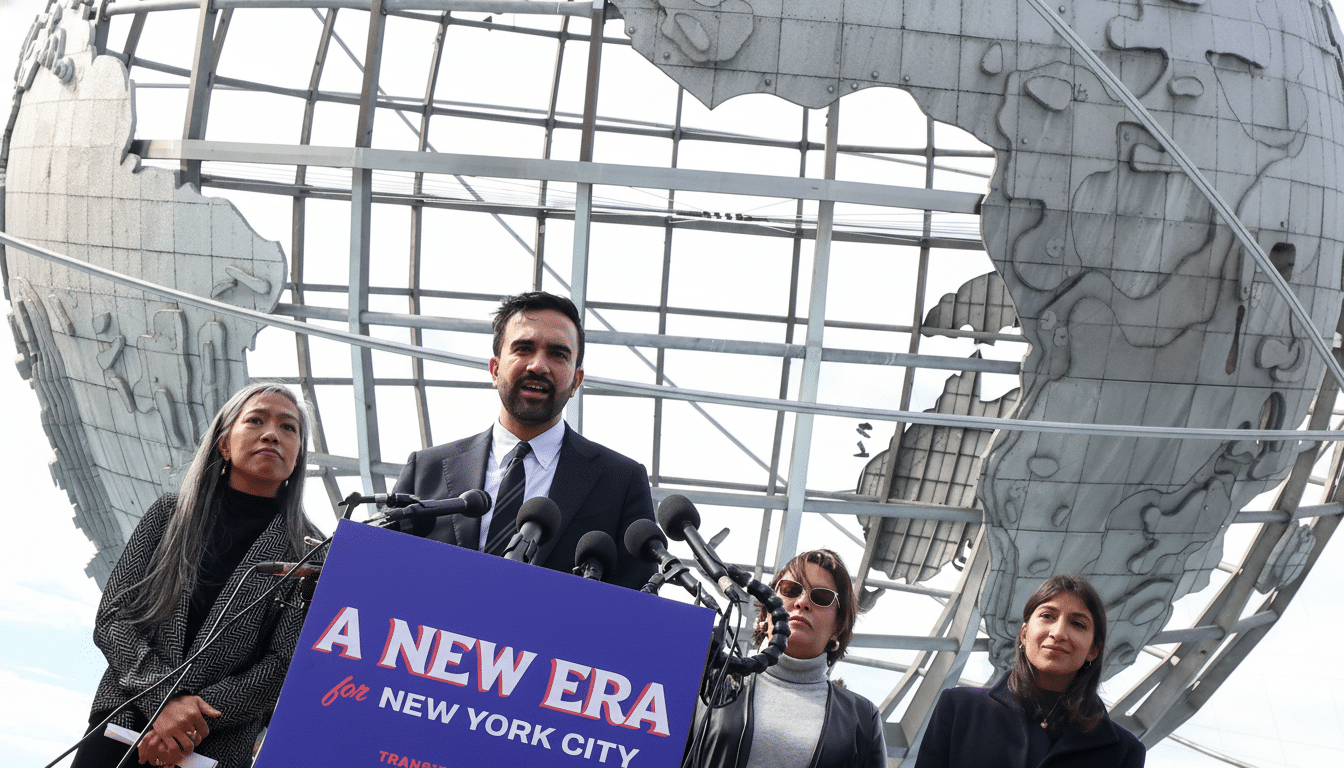Lina Khan, the former chair of the Federal Trade Commission and a leading scholar on antitrust issues, will co-chair mayor-elect Zohran Mamdani’s transition team, signaling a City Hall that is hungry to investigate corporate power and has its thumb on the scale in support of small businesses.
The move installs a nationally known competition enforcer in the midst of the staffing and policy-building for the new administration.

Mamdani’s win highlights the theme of his insurgent campaign: a government less in thrall to concentrated wealth and more in touch with working people, tenants, and mom-and-pop businesses. It also trumpets an openness to do battle with industries that, over the generations, have defined New York’s economy, from finance and real estate to delivery platforms and cloud vendors, all in the name of fair competition and consumer protection.
Who Khan Is and Why Her Role in NYC Matters
Khan came to prominence by changing the nature of antitrust debates with her scholarship on digital platforms and by pursuing landmark cases as the leader of the FTC. Under her leadership, the agency sued to block high-profile deals and challenged dominant tech companies over practices it said have harmed competition. But even in cases where courts did not ultimately land on the FTC’s side, executives quietly conceded that the agency’s actions put up roadblocks and rewrote dealmaking risk calculus.
Antitrust enforcement at the city level is modest, but the stakes are large. Transition co-chairs assist in selecting commissioners, fleshing out early executive orders, and establishing the tone on procurement and regulation. Anticipate Khan’s stamp in how New York goes about awarding technology contracts, crafting platform accountability rules, and empowering small businesses to compete — areas where local policy can seriously change market behavior.
A Signal to Wall Street and Big Tech from City Hall
Mamdani’s campaign had received fierce resistance from some quarters of the finance and tech elite after he called for a 2% tax on high incomes above $1 million, as well as tougher regulatory oversight of gig platforms. High-profile donors poured millions into defeating him, and major delivery and marketplace companies supported rival efforts. His win, now matched with Khan’s selection, suggests that voters have been receptive to a platform promising curbs on outsized corporate influence.
There is recent precedent for these battles in New York. The city’s Department of Consumer and Worker Protection enacted a first-in-the-nation pay floor for app-based couriers, which could affect tens of thousands of workers and reframe earnings across delivery platforms. Court challenges followed. Adding an anti-monopoly thinker to the transition increases the chances that enforcement and expansion into adjacent areas like ride-hail standards, fee transparency, or worker data access could become a reality.

What a Transition Co-Chair in New York Really Does
Transitions are the narrow window during which governing agendas take form. Co-chairs recruit agency heads, gather issue working groups, and set priorities for the first 100 days. They exert influence over personnel for jobs like the city’s budget director, housing and transportation chiefs, and the head of the Office of Technology and Innovation — roles that affect how policies land on the ground.
Look for workstreams focused on small business licensing and fines reform, contract oversight, labor standards in platform work, and open data commitments. City Comptroller reports over the past decade have identified ongoing risk in procurement and IT projects; a competition-forward lens could help prevent big-ticket awards from flowing unchallenged to too few vendors, or spur stronger conflict-of-interest protections or clearer performance benchmarks for multi-year tech contracts.
Policy Areas to Watch in the New Administration
- Delivery and Gig Economy: Layering on top of the existing wage floors, another phase of the transition could address standardized tips disclosure, caps on junk fees, and safeguards against getting deactivated entirely out of the blue. The city is empowered to regulate many aspects of marketplace conduct and could potentially use audits to ensure that companies are complying with the pay rules.
- Small Business Competition: Khan lauds outreach, which cuts red tape for neighborhood retailers. Expect reform intended to rein in predatory leasing practices, expand commercial lease mediation, and guarantee that all city purchasing favors competitive bidding that includes small vendors rather than automatically accepting the status quo.
- Tech Procurement and Data Policy: New York’s government spends billions in software, cloud, and infrastructure every year. A competition-aware tactic might involve standards-based bidding, mobility conditions, and sunset reviews in order to prevent lock-in — with a focus on cybersecurity and privacy protections for its citizens.
- Consumer Protection and Platform Accountability: The administration can use licensing, inspections, and penalty authority to demand fairer disclosures on fees, algorithmic accountability where it applies, and better complaint pathways for workers and customers alike.
A Broad Transition Bench of Civic and Nonprofit Leaders
Filling the other co-chair positions will be leaders distinguished by their long involvement in both the city and nonprofit sector: Grace Bonilla of United Way of New York City, former deputy mayor Maria Torres-Springer, and Melanie Hartzog of New York Foundling. Under the direction of Elana Leopold, a veteran of previous city administrations, the team will oversee coordinated law enforcement efforts across the agencies along with ad hoc initiatives designed to bring down gangs. It’s a combination intended to marry reform energy with institutional know-how, which can decide whether ambitious promises make it past first contact with municipal reality.
The Road Ahead for a Pro-Competition City Hall Agenda
Khan’s arrival isn’t going to amount to City Hall litigating antitrust from the municipal level. It does suggest, though, that the transition will test how much a pro-competition, pro-worker agenda can do with New York’s regulatory and contracting apparatus. The early clues to watch: commissioner selections for consumer protection, technology, and small business; the format of transition working groups; and initial waves of executive actions on platform labor and procurement reform.
“You campaigned on taking power out of corporate boardrooms and putting it into the hands of workers; pick anybody else. In picking a CTF co-chair who has been unafraid to go after dominant firms in the industries that we watch and ask, as you did earlier this year — why not pick anyone else? The question now is when will that philosophy become policy, and how soon New Yorkers can expect to notice the difference on their block, in their paycheck, and with those apps they’re using every day.”

